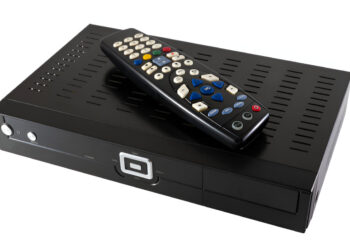Building a custom gaming PC offers an exciting venture for gaming enthusiasts. Tailoring your computer to your specific needs not only enhances your gaming experience but also allows for a deeper understanding of computer hardware.
When you build a custom gaming PC, you unlock the opportunity to select each component based on your preferences and budget, ensuring that you get the best value for your money.
The importance of a custom gaming PC lies in its performance and personalization. Unlike pre-built computers, a custom gaming PC can be optimized for specific games or software, providing smooth gameplay and impressive graphics.
Moreover, it offers scalability for future upgrades and repairs. This flexibility makes a custom gaming PC a worthy investment for both novice and seasoned gamers.
Budget Allocation for Different Components
While building a gaming PC under $1200, it is important to allocate the budget wisely for different components to ensure optimal performance. Here’s a suggested breakdown for your budget:
- CPU (Central Processing Unit): This is the brain of your PC. A good CPU ensures your computer can handle multiple tasks at a time. Allocate around 20% of your budget or $240 for this.
- GPU (Graphics Processing Unit): This component is crucial for gaming. It directly influences the quality of graphics and the smoothness of gameplay. Spend about 35% of your budget or $420 on a good GPU.
- RAM (Random Access Memory) & Storage: Investing in a good amount of RAM and storage enhances the overall speed and responsiveness of the PC. Allocate around 15% or $180 of your budget for this.
- Motherboard: This component connects all other parts of your PC. Spend approximately 10% or $120 on a reliable motherboard.
- Power Supply and Case: A stable power supply and a good case, which houses all the components, are also important. Allocate around 10% or $120 for these components.
- Cooling System: Having a good cooling system can increase the life and performance of your PC. Spend the remaining 10% or $120 on this.
Remember, this is just a suggested allocation. Depending on your specific gaming needs and preferences, you may wish to adjust these percentages.
Component Selection Guide
Processor (CPU)
When it comes to CPUs, consider products from AMD and Intel. AMD’s Ryzen 5 3600 or Intel’s i5 10400F are solid choices that perform well and fit within our budget range.
Graphics Card (GPU)
For the GPU, the NVIDIA GeForce RTX 2060 Super offers excellent performance and value. If you prefer AMD, the Radeon RX 5700 is a comparable alternative.
Memory (RAM)
A 16GB RAM kit is the sweet spot for gaming. Consider the Corsair Vengeance LPX 16GB (2 x 8GB) DDR4 DRAM 3200MHz for a balance between cost and performance.
Storage (HDD & SSD)
A combination of SSD for your operating system and frequently used games, and HDD for storage works best. The Kingston A2000 NVMe PCIe M.2 500GB SSD and the Seagate Barracuda 2TB HDD are excellent choices.
Power Supply Unit (PSU)
A 600W power supply should be sufficient for this build. The EVGA 600 W1, 80+ WHITE 600W, is a reliable option that won’t break the bank.
Motherboard
The MSI B450 TOMAHAWK MAX ATX AM4 Motherboard is a good choice for our build. It’s compatible with the other components and offers room for future upgrades.
Cooling System
The Cooler Master Hyper 212 RGB Black Edition is a high-quality and affordable option for your CPU cooling needs.
Case
Last but not least, the NZXT H510 ATX Mid Tower Case is stylish, easy to build in, and reasonably priced. It can comfortably house all the components of this gaming PC.
Remember, prices fluctuate, and availability varies, so always look for the best deals and be flexible with your component choice.
Where to Buy Components## Reliable Retailers & Tips on Finding the Best Deals
When it comes to buying components for your gaming PC, choosing reliable retailers can make a significant difference. Here are a few trusted options:
- Amazon: Known for its extensive selection and competitive pricing, Amazon is a popular choice for PC components. They also offer buyer protection, ensuring a secure shopping experience.
- Newegg: A retailer specializing in computer components, Newegg is highly regarded in the PC building community. They often provide detailed product specifications and user reviews.
- Micro Center: They offer a wide range of components and often have in-store-only deals that can result in significant savings.
- Best Buy: While they may not have as diverse a selection as the other retailers, Best Buy often has competitive pricing, and their return policy is quite robust.
Finding the best deals requires a bit of research and patience. Here are some tips to help you save money:
- Compare Prices: Use websites like PCPartPicker to compare prices from different retailers. These sites will show you the price history of a product and alert you to significant price drops.
- Sign up for Newsletters and Alerts: Many retailers offer email newsletters that often contain special deals, discount codes, or early access to sales.
- Black Friday/Cyber Monday Deals: These are some of the best times to buy computer components. Plan ahead and be ready to make your purchases during these sales.
- Buy in Bundles: Sometimes, retailers offer discounted prices when buying components in bundles. Check for these offers, especially for components like the CPU and motherboard, which are often bundled together.
Keep these tips in mind and remember, building a gaming PC is not only about getting the highest-performing components but also about getting the best value for your money.
Maintenance and Upgrades
Proper maintenance of your gaming PC is crucial to its longevity and overall performance. Here are some tips to keep your machine running smoothly:
- Regular Cleaning: Dust accumulation can degrade your computer’s performance over time and potentially damage components. Regularly clean your PC with compressed air, focusing on areas like fans and heatsinks where dust typically accumulates.
- Software Updates: Keep your operating system and drivers updated, as this can have a significant effect on your gaming experience. Updates often provide performance improvements and security patches.
- Monitor Temperatures: High temperatures can cause damage to your components. Use software to monitor your PC’s temperature, and ensure your cooling system is working efficiently.
- Install a Good Antivirus: A good antivirus can protect your gaming PC from harmful malware that can slow down your system.
In terms of upgrading your components, it largely depends on your specific needs and the games you are playing. Yet, some general guidelines include:
- Upgrade GPU for Better Graphics: If your games aren’t looking as sharp or running as smoothly as you’d like, it might be time to upgrade your graphics card. This is usually required every 2-4 years, depending on the games you play.
- Increase RAM for Improved Multitasking: If your PC is slowing down when running multiple applications, consider upgrading your RAM.
- Switch to SSD for Faster Load Times: If you’re still using a hard drive, switching to an SSD can dramatically decrease load times and improve overall system responsiveness.
Remember, always ensure your power supply can handle any new components before you upgrade. Upgrading your PC should be a strategic decision based on ensuring the best gaming experience.
Read Also Gaming on MacBook Air
Conclusion
In this guide, we have covered essential aspects of building your gaming PC, from choosing the right components such as the GPU, RAM, storage, PSU, motherboard, cooling system, and case, to finding reputable retailers and securing the best deals. We’ve also highlighted the importance of regular maintenance and potential upgrades to ensure your PC continues to perform optimally.
Building a gaming PC is a rewarding journey that blends technical knowledge, research, and personal preferences. It allows you to create a machine tailored to your specific gaming needs and provides a sense of achievement that pre-built systems cannot match.
Congratulations on taking this step towards enhancing your gaming experience. Remember, the PC building community is a collective of enthusiasts who are always ready to help and share advice. Don’t hesitate to seek support and share your experiences along the way. Happy building!



